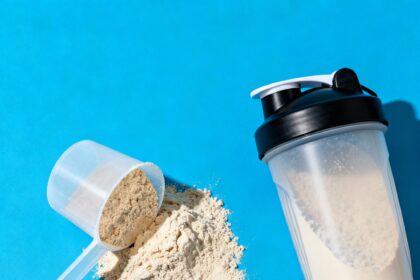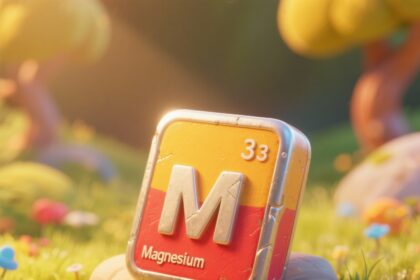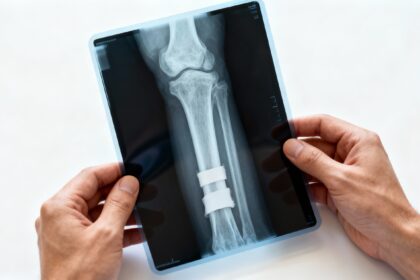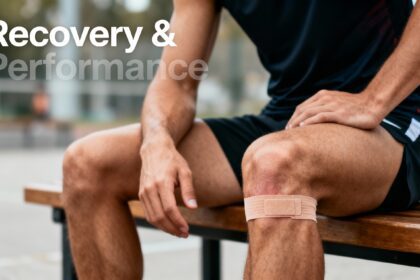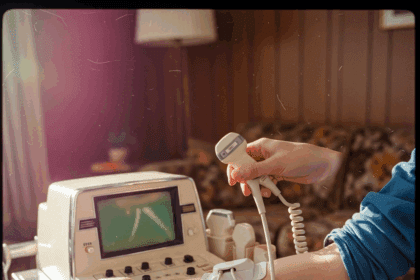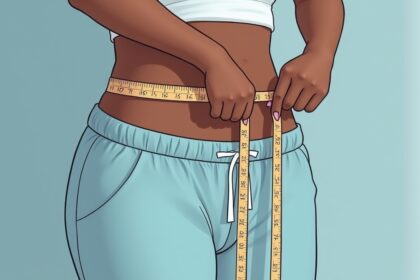By John Ambrosio
Introduction
Many different factors can affect an athlete’s abilities and their overall athletic performance. Rest and recovery are crucial aspects that can greatly impact performance. Rest and recovery can affect the body both physiologically and psychologically. A major concern is the quantity and quality of sleep that an athlete receives.
The amount of sleep and rest varies greatly, but trends have shown a notable lack of adequate sleep among student-athletes. This seems to be reflected in a 2013 study of student-athletes because of the multiple demands and time constraints that affect the amount and quality of sleep that they receive.
Recommended Sleep Duration
The recommended amount of sleep for athletes is between seven to nine hours of sleep each night. However, a 2008 study suggested this can vary between individuals as some require more sleep if dealing with higher training loads or increased competition. The amount of sleep an athlete obtains could either negatively or positively influence their performance.
Proper sleep can impact a person’s psychological or mental state and has been known to improve cognitive function. This means that when an athlete learns new skills, they often form connections in their sleep that make it possible to remember those skills. When athletes do not receive quality sleep or the recommended quantity of sleep, the connections cannot be made and their performance will tend to decline.
With reduced cognitive functioning, decision-making abilities, as well as their adaptability will also start to decline.
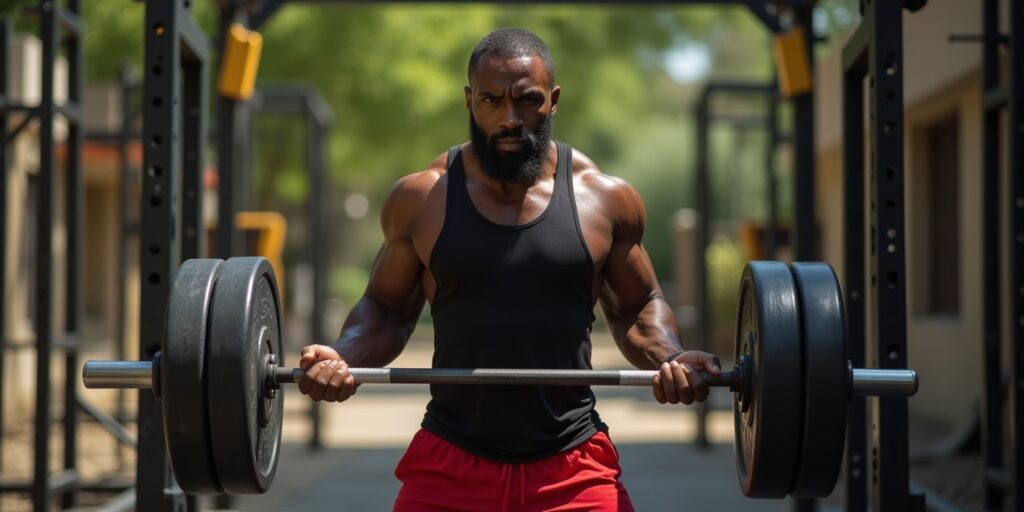
Sleep and Mood
Having quality sleep has also been linked to improving overall mood. A 2022 study found that when an athlete maintains the amount of sleep recommended, it helps to reduce irritability, and decreases the risk of developing depression, which could also affect athletic performance. There are a few additional reasons why getting adequate sleep is important for better performance.
First, sleep improves overall accuracy and increases reaction time. With a loss of sleep, athletes tend to become exhausted more quickly, have more difficulty learning, and tend to make poorer decisions.
Physiological Benefits of Sleep
Sleep can also impact an athlete’s physiological state. During sleep, the body has time to properly repair tissues damaged during training. It also gives time for the heart and vascular system to recover.
It has been found that there is an increased risk for injury and illnesses among athletes who have a chronic lack of sleep. The increased risk of injury is the result of greater fatigue and lower energy.
Hormonal Impact of Sleep Deprivation
Lack of sleep has also been linked with unfavorable changes with hormone levels. Hormonal balance can be thrown off as higher levels of the stress hormone, Cortisol, and lower levels of the Human Growth Hormone (HGH) are produced. Hormone imbalances can lead to issues with tissue repair, which hormones help to regulate according to a 2022 study.
Recovery Beyond Sleep
The role of recovery is especially crucial for improving athletic performance. Although “recovery” may infer many things, sleep is a major element of the recovery process. However, recovery can also involve proper nutrition, proper hydration, and different exercises and stretches.
Hydration
One important element of recovery is to ensure proper hydration. This may be considered a short-term recovery technique as fluids should be consumed before, during, and after exercise. It has long been established that dehydration impairs performance.
A loss of between 3-4 percent of body mass from dehydration will result in a loss of strength, power, and endurance. However, according to a 2009 study, a 2-7 percent loss of body mass produced significant reductions to endurance exercise performance. Proper hydration can help reduce body temperature and replace the fluids lost through sweat. Although water may be helpful when trying to stay properly hydrated, a 2009 study showed that sports drinks are also effective.
Sports drinks provide nutrients, electrolytes, and other substances that can refuel and rehydrate the body. Some of the advantages of sports drinks include improved rehydration, reduction of the physiological stress of exercise, and enhanced recovery after exercise.

Recovery Exercises and Stretching
Other important factors in the recovery process are exercises and stretches. Light exercises after an athletic performance have been shown to increase blood circulation in the body. This increased blood circulation is important as new blood has nutrients that aid in repairing and rebuilding muscles, tendons, and ligaments that might have been damaged. Recovery exercises should increase the heart rate slightly above a resting rate.
A 2022 paper suggested some exercises to help facilitate recovery are walking, jogging, cycling, elliptical machine, light weightlifting, and swimming or aquatic exercises. Stretching and exercises like Pilates and yoga are also useful to incorporate for recovery. They allow the body to increase range of motion, increase overall flexibility, and may be used effectively during cool-down sessions.
Nutrition for Recovery
Proper nutrition is also a consideration when recovering. It is important to first replenish the body with carbohydrates. Carbohydrates are a key source of fuel utilized by the brain and the central nervous system.
The body’s store of carbohydrates is very limited, making it especially important to replenish them to prepare for any athletic performances. A 2016 study provides evidence suggesting that the performance of prolonged high-intensity exercises is enhanced by maintaining high carbohydrate availability. General recommendations for the amount of carbohydrates to consume vary based upon body size and the intensity of the performance.
Consuming sufficient protein is another important step in the recovery process. High quality proteins can help to initiate the repair and growth of muscles. This especially helps when muscle tissues are damaged from an athletic performance. A 2016 study suggested that the amount of protein needed for this repair and remodeling is between 1.2 to 2.0 g/k/d.
Conclusion
There are a number of different factors that can affect an athlete’s abilities and their overall athletic performance. Proper rest and recovery are crucial aspects that can greatly improve performance both on and off the field. Getting proper sleep will enable the body to heal physiologically, as well as psychologically.
The most useful tactics someone can incorporate in recovery from athletic performances include rest, light exercises, light stretches, proper hydration, and proper nutrition.
References
Ansorge, B. R. (2022, February 11). Rest and recovery are critical for an athlete’s physiological and psychological well-being. UCHealth Today. Retrieved July 10, 2022, from https://www.uchealth.org/today/rest-and-recovery-for-athletes-physiological-psychological-well-being/#:~:text=Nobody%20questions%20the%20value%20of,Dr.
Bird, S. (2013). Sleep, recovery, and Athletic Performance: A brief review…: Strength & Conditioning Journal. LWW. Retrieved July 11, 2022, from https://journals.lww.com/nsca-scj/FullText/2013/10000/Sleep,_Recovery,_and_Athletic_Performance___A.8.aspx
Bishop, P., Jones, E., & Woods, K. (2008). Recovery from training: A brief review: Brief review: The journal of strength & conditioning research. LWW. Retrieved July 11, 2022, from https://journals.lww.com/nsca-jscr/Fulltext/2008/05000/Central_and_Peripheral_Fatigue_after.00049.aspx
Copenhaver, E. A., & Diamond, A. B. (2017). The value of sleep on athletic performance, injury, and recovery in the young athlete. Pediatric Annals, 46(3). https://doi.org/10.3928/19382359-20170221-01
Fry, A. (2022, April 13). How sleep affects athletic performance. Sleep Foundation. Retrieved July 10, 2022, from https://www.sleepfoundation.org/physical-activity/athletic-performance-and-sleep#:~:text=A%20Lack%20of%20Sleep%20Affects,poor%20decisions%20and%20take%20risks.
Shirreffs, S. (2009, November 17). Hydration in sport and exercise: Water, sports … – wiley online library. Wiley Online Library. Retrieved July 10, 2022, from https://onlinelibrary.wiley.com/doi/full/10.1111/j.1467-3010.2009.01790.x
Thomas, T., Burke, L., & Erdman, K. A. (2016, March). Nutrition and athletic performance: Medicine & science in sports & exercise. LWW. Retrieved July 9, 2022, from https://journals.lww.com/acsm-msse/Fulltext/2016/03000/Nutrition_and_Athletic_Performance.25.aspx






